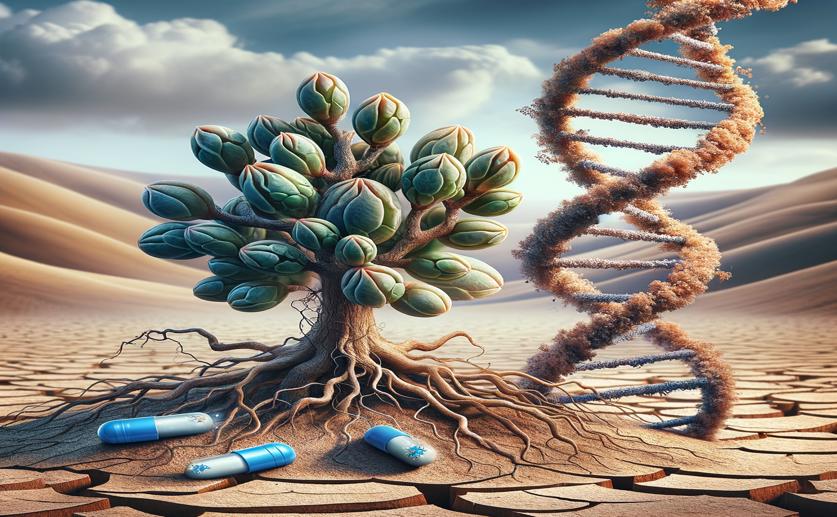
How DNA Controls Soapberry Adaptation to Drought
Jenn Hoskins
4th April, 2024

Image Source: Natural Science News, 2024
Key Findings
- In North China, Siberian ginseng adapts to drought by changing its DNA methylation, affecting gene activity
- Reduced DNA methylation at specific gene promoters increases the production of saponins, compounds beneficial for plant health
- These changes enhance the plant's antioxidant capacity, helping it combat stress and potentially improving its medicinal value
References
Main Study
1) DNA methylation regulates the secondary metabolism of saponins to improve the adaptability of Eleutherococcus senticosus during drought stress
Published 2nd April, 2024
https://doi.org/10.1186/s12864-024-10237-x
Related Studies
2) Balangu (Lallemantia sp.) growth and physiology under field drought conditions affecting plant medicinal content.
3) DNA Methylation in Plant Responses and Adaption to Abiotic Stresses.
4) How do plants remember drought?



 22nd March, 2024 | Jim Crocker
22nd March, 2024 | Jim Crocker